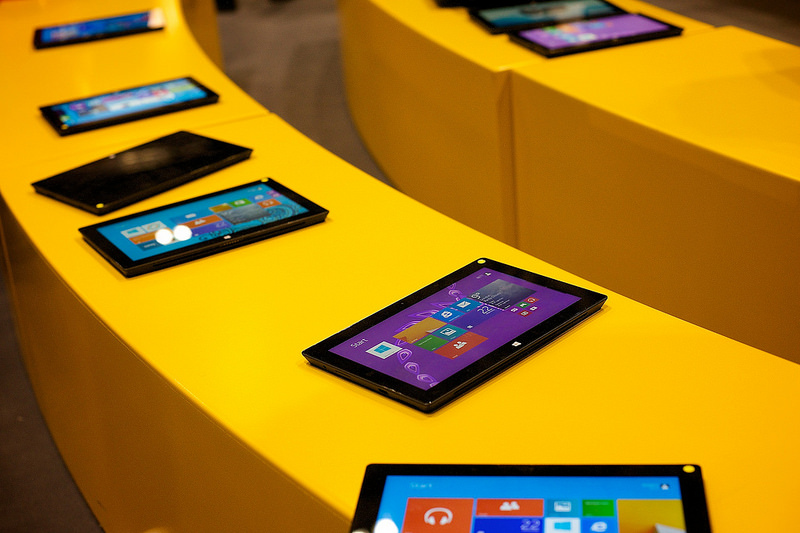2013 was not a good year for the Windows PC. The growing popularity of tablets and smartphones are cutting into desktop and laptop sales. Of the laptops that are being sold, non-Windows laptops make up more than a third of all sales according to Forbes. The release of Windows 8 in late 2012 put only a slight hiccup into six quarters of steady decline. The result? Well, a really depressing growth chart:
Looking at the chart by Business Insider, it’s pretty clear that Microsoft needs a plan to remain competitive in the personal computing field. That plan should hopefully include these three action items:
1. Become a Real Contender in Mobile Phones and Tablet PCs
People rave about their Android or iPhones. Windows phone users are curiously quiet. Microsoft needs to not only create software and applications for mobile and tablet PCs but also to create something that people can get excited about and enjoy using. Mediocrity is just not going to cut it. If the result is going to be average at best, Microsoft should consider joining forces with its mobile competitors.
2. Develop and Grow Cloud Computing and SaaS
For many years Microsoft enjoyed having the bulk of business and education enterprise users firmly in its grasp. In order to run software, share files and utilize in-house IT support, it only made sense to have as many of the PCs in your organization run Windows as possible. It was great while it lasted, but today, cloud computing and SaaS IT solutions accommodate a wide variety of system configurations. So that golden goose for Microsoft is in the twilight of its life. Fortunately Microsoft has developed several cloud-based enterprise solutions, including Outlook.com which received good reviews from PC Mag. Now, if only these services could be promoted and expanded upon, Microsoft might just see a light at the end of the tunnel!
3. Create Desirable Software
Since its release over a year ago, Windows 8 has not made any great waves in the IT world. In fact, it has some consumers either requesting Windows 7 on their new PCs, or holding on to their Windows XP machines for dear life (Microsoft said it will extend support for Windows XP SP3 until April 2014). This is troubling. You should not have your customers looking past your current products in favor of your previous offerings. It muddies the product lifecycle and hinders future developments. Who wants to jump on the bandwagon with the newest version of Windows when the previous version still has bugs?
It will be interesting to see how Microsoft will fare in 2014 and what changes it will make in an effort to turn things around. In the meantime, I’ll be looking into Chromebooks when it comes time to purchase my next laptop. They’re cheap, and I hear they have a pretty high rate of customer satisfaction.
Photo by Paul Hudson
via PC World




